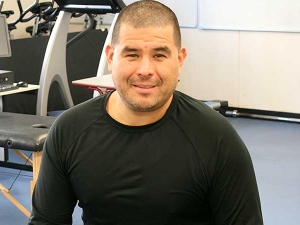
School of Sport, Exercise and Health PhD candidate Nick Castro’s study involves a health and wellness week for children aged eight to 10 years. It addresses these health indicators that include good eating habits, daily exercise, staying fit and getting enough sleep. The study will take place in primary schools at Wellington, Christchurch and Dunedin.
“Although cardio-vascular disease [closely related to cardio-metabolic health] is typically associated with middle or old age the process often initiates in childhood,” Mr Castro says.
The study involves a one-week process, which can be arranged at a time suitable for the school. Children are tested on such measures as their blood pressure, body composition (height, weight, hip, waist), and sugar and glucose levels. Then, later in the week, with support from agencies such as the Health Foundation, the entire school is invited to participate in a health and wellness day comprising similar tests, games and activities.
The Pre-Adolescent Cardio-Metabolic Associations and Correlates or PACMAC programme will collectively address in one study issues previously only investigated separately, Mr Castro says.
“While commonly cited causes of obesity include declining physical activity and fitness levels, poor nutrition and poor sleep habits, no study in New Zealand has comprehensively assessed all these components together in primary school-aged children.”
As he approaches the halfway point of his research, Mr Castro is calling on more schools and their pupils to participate in the study.
“The research outcomes from the PACMAC study will help inform health professionals, education curriculum developers and children health policy guidelines as to the most effective and cost efficient way to make an impact on the deteriorating health of children in New Zealand.”
At present New Zealand is always ranked among the top five countries with the highest rates of childhood obesity, he says. A contributory factor could be a child’s lack or quality of sleep, which can contribute to obesity, high blood pressure and decreased insulin sensitivity due to changes in the levels of appetite regulating hormones released during the sleep cycle.
In the short-term the findings will help clarify targets for reducing obesity and improving cardio-metabolic health among New Zealand children. Longer term, he says the study will look to promote larger scale research focusing on potential ethnic differences, changes across age groups, international comparisons and the implications for healthcare systems.
Schools that would like children to participate this term can contact Nick Castro at 027 906 3594 or email N.Castro@massey.ac.nz
The much-delayed English draft curriculum is now out for consultation, generating discussion from teachers.
Research from AUT demonstrates arts, culture and recreation have positive impacts on all aspects of…
How effective has the school phone ban been in achieving its aims? Researchers from the…
School camps and excursions deliver hands on learning experiences, helping to consolidate classroom learning.
Innovations in AV technologies present new opportunities to engage with students. We look at how…
A new report from the University of Auckland’s Our Voices Project asks young people what…
This website uses cookies.